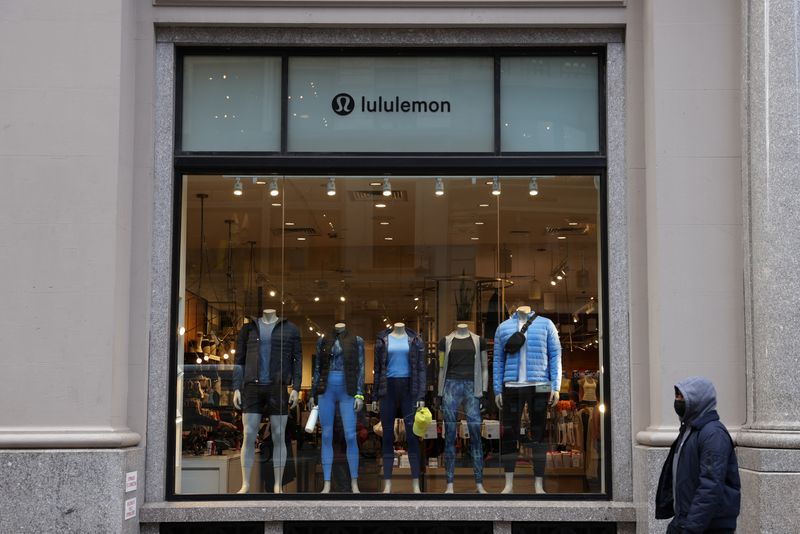By Annett Mary Manoj
(Reuters) -Lululemon Athletica forecast annual revenue and profit below expectations on Thursday as demand wanes for the apparel retailer's premium athleisure mainly in the North American region, sending its shares down nearly 11% in extended trading.
In the U.S., excessive inventory levels at sporting retailers has resulted in lower orders for sportswear and apparel firms, with companies including Adidas (OTC:ADDYY) and Foot Locker (NYSE:FL) exercising prudence in response to inconsistent consumer spending trends.
Lululemon (NASDAQ:LULU)'s first-quarter sales are off to a slow start in North America and the consumer environment in the U.S. has been somewhat challenging, CEO Calvin McDonald said in a post-earnings call.
It reported a 9% growth in fourth-quarter North American sales, compared with a 29% rise a year earlier and a 12% gain in the previous quarter.
The company projected fiscal 2024 revenue of between $10.70 billion and $10.80 billion, compared with analysts' estimates of $10.90 billion, according to LSEG. It expects profit between $14 and $14.20 per share, the midpoint of which was below expectations of $14.13.
"Lululemon's weaker-than-expected forecast underscores the broader challenges retailers are facing, as persistent price pressures drive shoppers to pull back on discretionary purchases and trade down to cheaper brands," Insider Intelligence analyst Rachel Wolff said.
The world's largest sportswear maker Nike (NYSE:NKE) also projected revenue in the first half of fiscal year 2025 to be in the low single digits as it expects a hit from scaling back on some key franchises and from weaker consumer sentiment.

However, Lululemon posted fourth-quarter revenue of $3.21 billion, beating expectations of $3.19 billion, mainly on the back of new styles for both men and women, such as Cityverse, a casual sneaker, as well as Beyondfeel and Beyondfeel Trail running shoes.
Even though Lululemon outperformed in the quarter, it's not immune to broader consumer caution and market trends, said Mari Shor, senior analyst at Columbia Threadneedle.